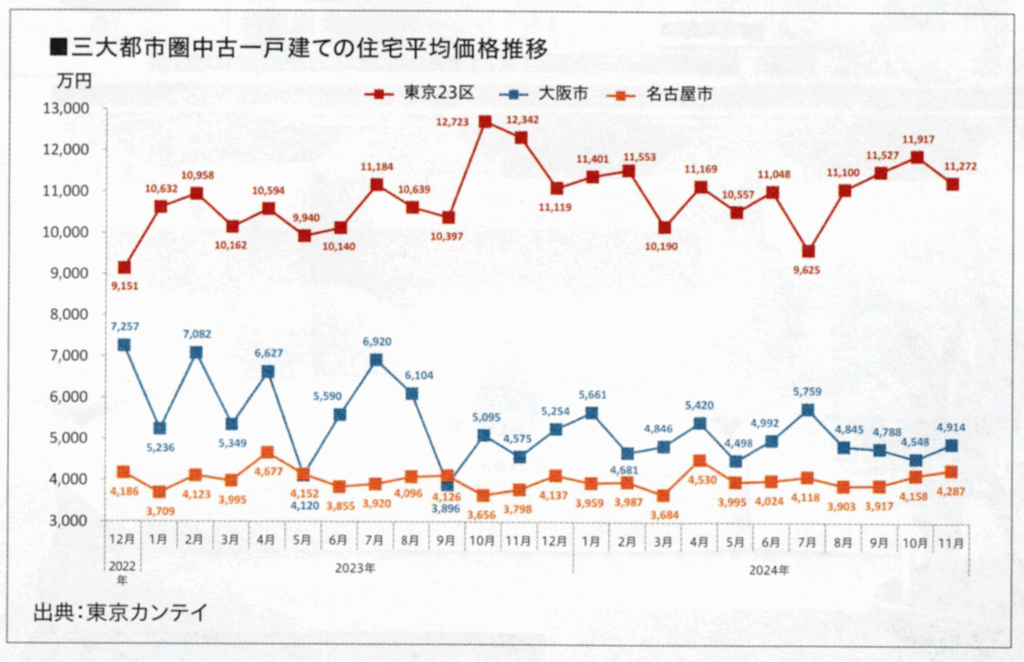In 2025, the so-called “baby boomer generation” in Japan—those born between 1947 and 1949—will all reach the age of 75 and older. This milestone is expected to trigger a surge in property inheritance and a rise in vacant homes, raising concerns about a potential decline in real estate prices. This is what’s being referred to as the “2025 Problem.”
■ A Sudden Crash? Unlikely
That said, a scenario where real estate prices suddenly collapse in 2025 is unlikely. Japan’s aging population and declining birthrate are long-term trends, not sudden developments. The real estate market has already started reflecting these demographic shifts, with price adjustments beginning in some areas.
■ Two Sides of the Market: Urban Boom vs. Quiet Rise in Vacancies
While headlines often highlight booming luxury condo sales and a “real estate bubble” in central Tokyo, the reality is different in rural areas. There, the number of vacant homes continues to grow steadily.
According to the national Land and Housing Survey published in 2024 (conducted every five years), as of October 2023, there were approximately 9 million vacant homes across Japan—a record vacancy rate of 13.8%.
■ It’s All About Supply and Demand
Real estate prices are fundamentally determined by the balance between demand (buyers) and supply (sellers). As Japan’s population declines and oversupply becomes an issue, price drops are a natural outcome.
This trend is especially visible in certain regions. For instance, Wakayama and Tokushima have the highest vacancy rates at 21.2%, while Saitama and Okinawa are under 10%. These regional differences are substantial.
■ Location is Everything
Even within the same prefecture, vacancy rates can vary significantly by area. That’s why the location of a property is becoming increasingly crucial when assessing its future value.
In regions with steep population decline, major price drops are expected. To address this, some local governments have begun promoting “Compact City” planning—a strategy aimed at concentrating residential zones to make public services and infrastructure more efficient.
■ Choosing the Right Municipality Could Shape Your Future
Going forward, the value of your property may largely depend on which municipality you live in. A town’s appeal, infrastructure investments, and local government policies will play a growing role in determining whether an area thrives or declines.

